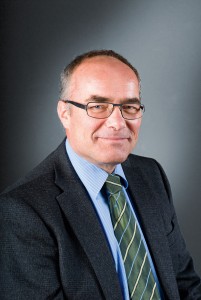
(Chief Editor Mining Report Glückauf)
Editorial
In Germany the process of training mining engineers has seen a number of significant transformations and developments over the course of the last ten years. This can be attributed both to a change in the overall conditions and requirements imposed by industry, science and society and to the introduction of a European reform of the study system. It is therefore an appropriate time for Mining Report Glückauf to undertake a review of mining study courses in Germany, including their general framework and perspectives and the degree programmes that are available, and to examine the joint initiatives and projects run by the mining colleges and universities, along with those operating at a European level.
Modern mining companies that want to offer attractive and secure working conditions need management personnel with the appropriate training and education. This is why four of Europe’s leading mining universities are now working with industry partners to establish a joint, coordinated postgraduate education programme, entitled SafeMine, whose focus will be on occupational safety and health protection in the mining industry. The structural changes that have taken place in the central German mining industry have posed a fresh set of challenges for the local mines rescue services. These demands and their impact on the TU Bergakademie Frei-berg’s training and research mine are discussed along with the European training project MINERS that has been launched as part of the university cooperation scheme.
The mining industry is set for a series of massive changes in the decades ahead and the increasing application of digitisation and automation technology will have to be matched by an efficient, sustainable and responsible approach to the way in which we use natural resources. The qualifications and training profile of future mining engineers will also have to change and adapt to these new circumstances. The CDIO Initiative that is discussed in this issue offers an innovative framework for the ongoing development of engineering studies. Another article on this subject indicates that sustainability has to be more strongly embedded than ever in our mining engineering courses. The current teaching and learning activities will also have to be adapted and this could be achieved by introducing innovative learning environments.
The opportunities open to those who have elected to study mining engineering are examined in a paper that deals with the optimisation of mine payability limits. This work is based on a master’s thesis that was the result of a collaborative effort involving RWTH Aachen University and a Canadian resources company. Mining therefore offers real prospects for university graduates, not just in Germany but elsewhere too. The current issue also features an article on technology and know-how transfer to Chile, demonstrating that intercultural understanding is a key to success.
With my best regards
Dipl.-Ing. Andreas-Peter Sitte
Chief Editor Mining Report Glückauf, Essen